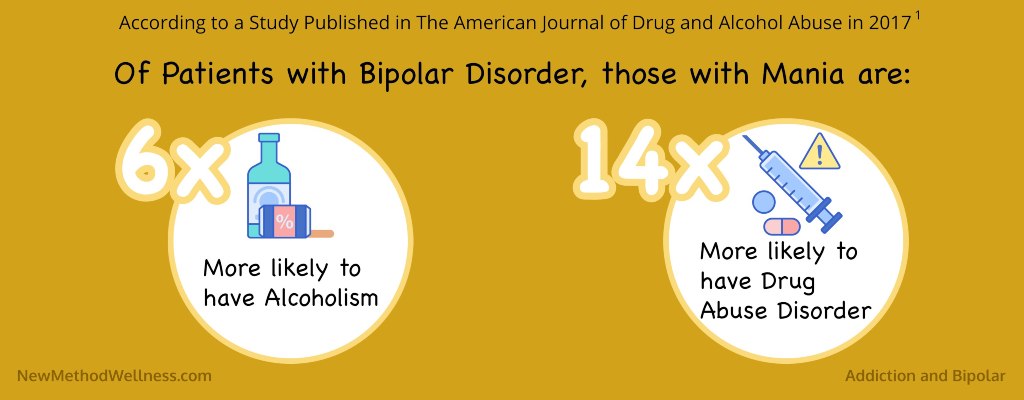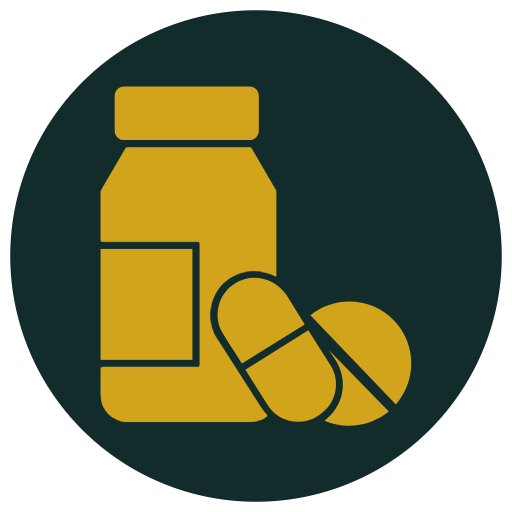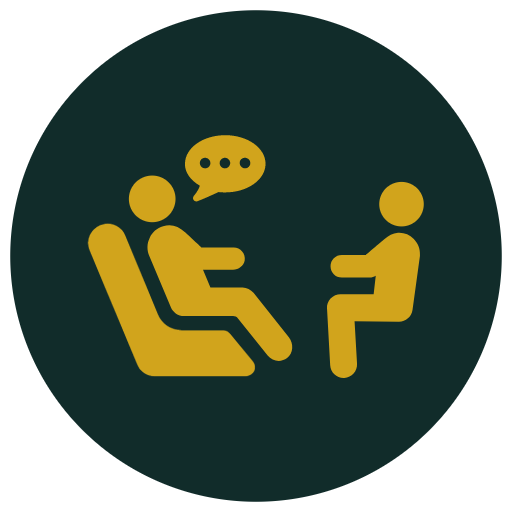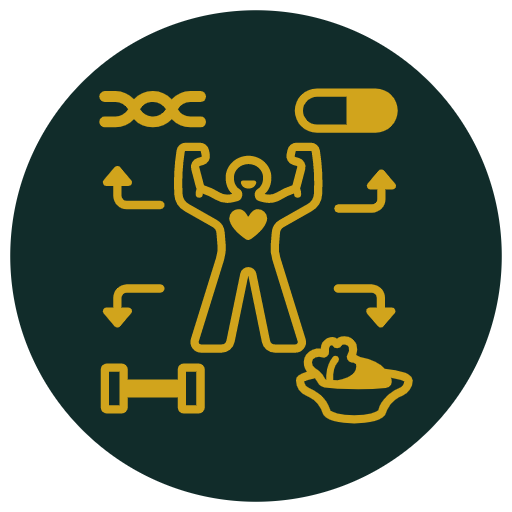It is common for people who have a substance abuse disorder also to have co-occurring behavioral health issues. The connection between bipolar disorder and alcohol and drug abuse is not fully understood. However, it has been shown that substance abuse often makes the symptoms of bipolar disorder worse.
Bipolar disorder is a behavioral health condition that causes individuals to experience extreme emotional shifts. There are two main moods associated with Bipolar: Mania and Depression. Mania is characterized by an extremely elevated mood, while depression is distinguished by a low mood.
How often someone with Bipolar Disorder experiences these mood changes varies from person to person. Depressive states caused by bipolar typically last a minimum of two weeks, while Manic episodes can last for several days to several weeks. The severity and frequency of these episodes also depend on the type of Bipolar Disorder that a person has.
There are four primary types of Bipolar Disorder: Bipolar I, Bipolar II, Cyclothymia, and Mixed Features. Bipolar I is characterized by severe shifts in mood from manic to depressed. Bipolar II often presents with a milder form of mania called “Hypomania,” interspersed with long stretches of depression. People with Cyclothymia often experience briefer periods of hypomania and depression that have less severe symptoms. While people with Mixed Features Bipolar Disorder often have simultaneous symptoms of mania and depression.
The three main symptoms that occur when a person has bipolar disorder are mania, hypomania, and depression.
A person who is experiencing a manic episode might feel an extreme emotional high. Mania can create feelings of euphoria, impulsivity, energy, and excitement. A person experiencing mania might also engage in impulsive behavior, such as drug use, unprotected sex, or spending sprees.
Manic episodes might lead a person to be excessively cheerful or excessively hostile. These episodes sometimes require hospitalization and can last a week or more.
Some of the symptoms of manic episodes include:
Manic episodes can be so severe that people are unable to function in an occupational or a social setting.
Hypomania is a symptom that is most commonly associated with Bipolar II Disorder. Not quite as severe as mania, hypomania changes an individual’s mood. However, it might not lead to issues at school, work, or in relationships.
During depressive episodes, people with bipolar disorder might experience:
Major depressive episodes can make it very difficult for people to function in an occupational or social setting. In order to meet the clinical definition of an episode, an individual’s depressed mood has to last for at least two weeks.
It isn’t always easy to diagnose bipolar disorder because of the variety of symptoms that can be associated with the illness.
While there is no cure for bipolar disorder, there are several treatment options that can help individuals with this illness manage their symptoms.
When a person suffers from an addiction, researchers believe that their brain system is experiencing a chronic dysfunction involving motivation, memory, and reward. Dependency alters the way an individual’s body craves a behavior or a substance, particularly if it leads to an obsessive or compulsive pursuit of the “reward” as well as a disregard for potential consequences.
In general, a person who is addicted to a substance or behavior will:
Having an addiction or a substance use disorder can seriously interfere with a person’s ability to fulfill their responsibilities. However, this may not always be apparent because it is common for people with addictions to go through cycles of remission and relapse. Inside of these cycles, substance use disorders and addictions usually get worse over time.
Addiction can lead to severe consequences such as bankruptcy and permanent health consequences. It can also wreak havoc on personal relationships with loved ones and friends.
It can be challenging to diagnose bipolar disorder in a person who has an active addiction. The symptoms of both manic and depressive episodes can be nearly identical to the behavior of a person abusing alcohol and drugs.
For example, a person experiencing a manic episode might act and look very much like a person on cocaine. Similarly, a person suffering from a major depressive episode might have very similar symptoms as someone who is going through withdrawal.
A person with a dual diagnosis for substance use disorder and bipolar should get help from a trained dual diagnosis treatment provider who can offer integrated treatment. An experienced specialist will be able to distinguish between the symptoms of bipolar disorder and addiction.
Doctors used several tests to diagnose bipolar disorder to help differentiate between the addiction and the behavioral health issue. A doctor might use psychological tests, physical exams, mood charts, and more to diagnose bipolar disorder.
So what is the relationship between addiction and bipolar disorder? Researchers are still working to understand how these two disorders are connected. However, it is clear that there is a connection, as up to 70% of all patients with bipolar disorder have dealt with substance use issues at one point in their lives.
Individuals who have bipolar disorder might abuse alcohol or drugs to regulate the changes in their energy and mood. The symptoms of bipolar disorder can be incredibly uncomfortable, leading many people with the condition to attempt to self-medicate. They might drink or get high in an attempt to manage their feelings of depression, or they might try to extend their manic period by using stimulant drugs.
There are many ways that substance abuse can impact the outcome of bipolar disorder, including:
Treating both substance use disorder and bipolar disorder can be complicated. However, when both conditions are treated simultaneously within the same program, there is a higher likelihood of a successful outcome. This means that these individuals should be treated at a facility where the staff has been cross-trained in both substance abuse treatment and behavioral health care.
It is believed that both addiction and bipolar are caused by a combination of biology, genetics, and environment, along with other factors. Drugs use can trigger the symptoms of bipolar disorder or bring on early-onset symptoms. It seems that alcohol and drugs use can make mood changes more apparent and more extreme, though it can be difficult to determine whether the addiction or the bipolar disorder came first.


Prescription Medications can help ease withdrawal symptoms and can stifle cravings in people with substance use disorder. The type of medication that is prescribed depends on the type of drug that the patient abused.
Bipolar disorder medications can help bring equilibrium to an individual’s life and can calm their mood shifts. Some of the medications that are commonly prescribed for bipolar disorder include:

Therapy is another form of treatment that will likely be a part of addiction and behavioral health treatment for an individual who suffers from substance use disorder and bipolar disorder. Some therapy methods used for these co-occurring illnesses include:

While medication and therapy are often necessary to treat the co-occurring disorders of bipolar and addiction, there are also some lifestyle changes that individuals with bipolar disorder can make to help keep themselves healthy. These include:
People with bipolar disorder should stay away from alcohol and drugs. They can aggravate the disorder. This is why specialized treatment is necessary when people suffer from both bipolar disorder and substance use disorder.
Are you interested in learning some healthy coping skills for addiction recovery? While seeking help from behavioral health professionals can be an essential part of recovery, there are also things you can do on your own to help support the recovery process. Take a look at these healthy ways to cope during your addiction recovery.
Our coordinated and integrated approach to behavioral health and substance abuse intervention is made up of a multidisciplinary team of clinicians who work to provide seamless, client-centered services. Our services range from social skills training to holistic therapy, and we are committed to helping people with dual diagnoses treat both their dependency on drugs and their underlying behavioral health disorder.
Handpicked by Dr. Phil, New Method Wellness is a premier dual diagnosis addiction treatment center dually accredited by The Joint Commission. It has been singled out as one of the best drug and alcohol rehab centers in America, offering a unique 3:1 staff-to-client ratio that pairs every client with two therapists instead of one.
At New Method Wellness, we add another dimension to dual diagnosis treatment: the integration of holistic therapy, such as massage/acupuncture therapy, equine therapy, and art therapy. As addiction therapists and substance abuse counselors work with clients to treat the substance use disorder and the co-occurring illness associated with it, holistic therapy adds meaning to life after treatment and sustains long-term recovery. Our 3:1 staff-to-client ratio ensures client success after treatment, as evidenced by our Extended Aftercare program.
Is it time for you or your loved one to receive addiction and bipolar disorder treatment? Contact us today to learn more about our holistic and innovative treatment programs.
(1) Salloum IM, Brown ES. Management of comorbid bipolar disorder and substance use disorders. Am J Drug Alcohol Abuse. 2017;43(4):366-376
(2) National Institute on Behavioral Health – https://www.nimh.nih.gov/health/statistics/bipolar-disorder
(3) Our World in Data – Behavioral Health
(4) Klara Latalova. Suicide in bipolar disorder: a review. Psychiatr Danub. 2014 Jun;26(2):108-14.
(5) Rodrigo Machado-Vieira. The role of lithium in the treatment of bipolar disorder: convergent evidence for neurotrophic effects as a unifying hypothesis. Bipolar Disord. 2009 Jun; 11(Suppl 2): 92–109.
Deanna Crosby is a Licensed Marriage and Family Therapist (LMFT) with over 20 years of experience working with clients in recovery. Her expertise has catapulted her into the spotlight. Featured on several episodes of the Dr. Phil Show as a behavioral health expert, DeAnna is a routine contributor for NBC News, The Huffington Post, Elle Magazine, MSN, Fox News, Yahoo, Glamour, Today, and several other prominent media outlets.
After receiving her bachelor’s degree from the University of California in Irvine, Crosby did postgraduate work at Centaur University where she graduated at the top of her class with a CAADAC certification in Centaur’s chemical dependency program. Following her time at Centaur, Crosby received her Master of Counseling Psychology degree from Pacifica Graduate Institute, where she also attained a Doctoral Degree in Depth Psychology.
Accredited by:
New Method Wellness
We firmly believe that the internet should be available and accessible to anyone, and are committed to providing a website that is accessible to the widest possible audience, regardless of circumstance and ability.
To fulfill this, we aim to adhere as strictly as possible to the World Wide Web Consortium’s (W3C) Web Content Accessibility Guidelines 2.1 (WCAG 2.1) at the AA level. These guidelines explain how to make web content accessible to people with a wide array of disabilities. Complying with those guidelines helps us ensure that the website is accessible to all people: blind people, people with motor impairments, visual impairment, cognitive disabilities, and more.
This website utilizes various technologies that are meant to make it as accessible as possible at all times. We utilize an accessibility interface that allows persons with specific disabilities to adjust the website’s UI (user interface) and design it to their personal needs.
Additionally, the website utilizes an AI-based application that runs in the background and optimizes its accessibility level constantly. This application remediates the website’s HTML, adapts Its functionality and behavior for screen-readers used by the blind users, and for keyboard functions used by individuals with motor impairments.
If you’ve found a malfunction or have ideas for improvement, we’ll be happy to hear from you. You can reach out to the website’s operators by using the following email juanita@newmethodwellness.com
Our website implements the ARIA attributes (Accessible Rich Internet Applications) technique, alongside various different behavioral changes, to ensure blind users visiting with screen-readers are able to read, comprehend, and enjoy the website’s functions. As soon as a user with a screen-reader enters your site, they immediately receive a prompt to enter the Screen-Reader Profile so they can browse and operate your site effectively. Here’s how our website covers some of the most important screen-reader requirements, alongside console screenshots of code examples:
Screen-reader optimization: we run a background process that learns the website’s components from top to bottom, to ensure ongoing compliance even when updating the website. In this process, we provide screen-readers with meaningful data using the ARIA set of attributes. For example, we provide accurate form labels; descriptions for actionable icons (social media icons, search icons, cart icons, etc.); validation guidance for form inputs; element roles such as buttons, menus, modal dialogues (popups), and others. Additionally, the background process scans all of the website’s images and provides an accurate and meaningful image-object-recognition-based description as an ALT (alternate text) tag for images that are not described. It will also extract texts that are embedded within the image, using an OCR (optical character recognition) technology. To turn on screen-reader adjustments at any time, users need only to press the Alt+1 keyboard combination. Screen-reader users also get automatic announcements to turn the Screen-reader mode on as soon as they enter the website.
These adjustments are compatible with all popular screen readers, including JAWS and NVDA.
Keyboard navigation optimization: The background process also adjusts the website’s HTML, and adds various behaviors using JavaScript code to make the website operable by the keyboard. This includes the ability to navigate the website using the Tab and Shift+Tab keys, operate dropdowns with the arrow keys, close them with Esc, trigger buttons and links using the Enter key, navigate between radio and checkbox elements using the arrow keys, and fill them in with the Spacebar or Enter key.Additionally, keyboard users will find quick-navigation and content-skip menus, available at any time by clicking Alt+1, or as the first elements of the site while navigating with the keyboard. The background process also handles triggered popups by moving the keyboard focus towards them as soon as they appear, and not allow the focus drift outside of it.
Users can also use shortcuts such as “M” (menus), “H” (headings), “F” (forms), “B” (buttons), and “G” (graphics) to jump to specific elements.
We aim to support the widest array of browsers and assistive technologies as possible, so our users can choose the best fitting tools for them, with as few limitations as possible. Therefore, we have worked very hard to be able to support all major systems that comprise over 95% of the user market share including Google Chrome, Mozilla Firefox, Apple Safari, Opera and Microsoft Edge, JAWS and NVDA (screen readers), both for Windows and for MAC users.
Despite our very best efforts to allow anybody to adjust the website to their needs, there may still be pages or sections that are not fully accessible, are in the process of becoming accessible, or are lacking an adequate technological solution to make them accessible. Still, we are continually improving our accessibility, adding, updating and improving its options and features, and developing and adopting new technologies. All this is meant to reach the optimal level of accessibility, following technological advancements. For any assistance, please reach out to juanita@newmethodwellness.com